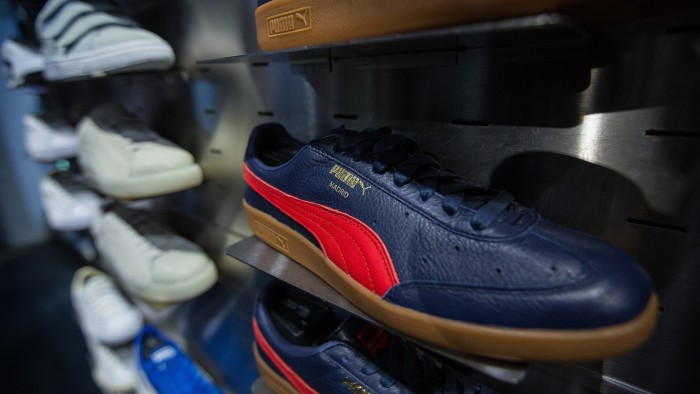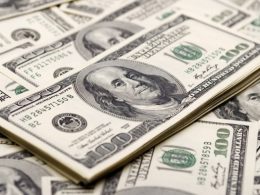Unlock the White House Watch newsletter for free
Your guide to what the 2024 US election means for Washington and the world
President Trump’s tariffs have poked a hole in retail and apparel stocks on both sides of the Atlantic.
Nike, Adidas, Puma, Lululemon Athletica, Amer Sports and Abercrombie & Fitch all dropped more than 10 per cent on Thursday, while Skechers, Gap and Hoka owner Decker Brands lost around a fifth of their value.
Brands that have shifted production to Vietnam and other south-east Asian countries to reduce exposure to China were caught on the hop by the 46 per cent tariff rate on Vietnamese goods.
It will take time for investors to unravel this yarn. Aside from sourcing, there are other factors to consider — including how much of a company’s revenue is US-based and how much room it has to raise prices. Nike, for instance, sources 44 per cent of its products from China and Vietnam. But 58 per cent of its revenues come from outside the US and its brand carries some pricing power. Yet all this may mitigate, rather than eliminate, the tariff impact.
Amid the sea of red, there is one subset of merchants that actually stands to benefit from Trump’s sweeping trade war. Off-price retailers buy excess inventory from top brands — largely in the US — and then resell it on the cheap.
The biggest of these is TJX. The company behind TJ Maxx and Marshalls has bucked the malaise that has disrupted the wider US retail sector over the past decade thanks to its value-oriented business model. Its shares have more than tripled over the past five years to give the company a market valuation of $141bn. That is more than the combined market capitalisations of Nike and Target. Smaller rivals Ross Stores and Burlington Stores have booked gains of around 80 per cent over the same period.

TJX imports less than 10 per cent of its merchandise directly from China. Instead its “opportunistic buying” strategy capitalises on other companies’ misfortunes. It buys items that have piled up due either to supply chain disruptions or weak consumer sentiment for pennies on the dollar. Shoppers flock to its 5,000-plus stores for the treasure hunt-like atmosphere. It booked a net income of $4.9bn on $56.3bn of sales in its most recent fiscal year.
If Trump’s tariffs go into effect, off-price retailers like TJX stand to benefit in two ways. Full-price clothing sellers — especially those whose frocks are made abroad — face the likelihood of more inventory pile-ups that they would then have to liquidate at a discount. At the same time, a weakening economy means consumers are more likely to trade down and frequent off-price retailers instead.
Over the past decade, off-price chains have been winning at the expense of full-price retailers. In the latest round of tariffs, too, retailers that buy discounted stock will fare better than discounted retail stocks.
Source link









